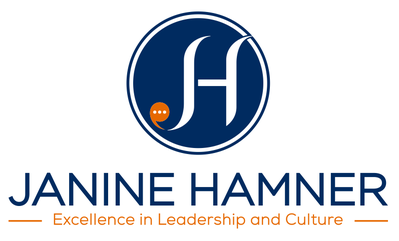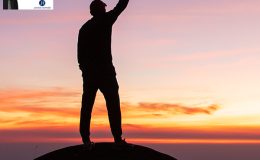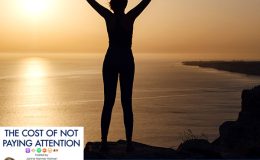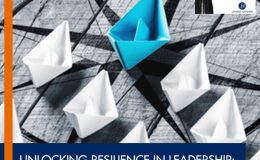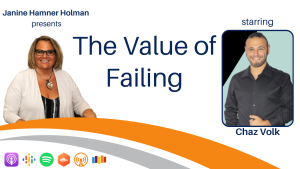
When is the last time you failed? What opportunities came from that failure? In this episode, Janine Hamner Holman sits down with Chaz Volk, an entrepreneur in marketing and podcast production, to discuss the value of failing in business and life.
GUEST: Chaz Volk | LinkedIn, Instagram, Facebook
HOST: Janine Hamner Holman | Janine@JandJCG.com | LinkedIn, Facebook, Instagram
We are doing a very different kind of show today. So we got a text about 15 minutes ago from our guest for today saying that unfortunately she had a family medical situation and so she was not going to be able to be here. Our guest today, therefore, is Chaz Volk.
Chaz is the amazing producer of my podcast. We decided we were going to probe into a conversation Chaz and I just started three days ago, and we’re going to see how this goes. Welcome to the show, Chaz. I mean, you’re here all the time, but usually, people don’t get to know you.
That’s very kind of you to say. It’s great to be here in front of the camera as opposed to behind the camera. Typically, I’m the guy behind the scenes in The Wizard of Oz cranking different levers and pushing different buttons to make the kingdom run. In this case, I have the privilege of being in front of the camera while doing that. There may be a few different delays here and there for vulnerability’s sake, but ultimately we’re going to put on a good show and teach a lot of interesting concepts today.
Let’s get right into it. This is a whole different show. I’m not going to do my normal, what am I paying attention to? Nor am I going to ask Chaz the question I normally ask guests. Let’s get present back to the conversation you and I started three whole days ago. If you remember, what was it that you asked me?
In the last interview, you did with Enrique Acosta Gonzalez, I was very moved by, in the public eye, how vulnerable you were. You talked about your personal life, and you spoke about things that weren’t working 100%. It caught my eye because out of all the podcasts I produce, not many of my clients do that.
I was intrigued by that concept. I asked, first of all, is that a good idea? It challenged some of my philosophies too. The second thing is that I had to think about what that does from a connection standpoint. Because it’s either going to do one of two things. If you get too personal, if you get to that TMI stage, you’re going to turn people off. If you’re at that connection empathy level, you’re going to reel people in this significant way. I think that’s really unique.
Thanks. What I want to talk about today is why it is that I do that and why it is that I allow myself to do that. As you spoke about, it’s very important to know where the line is. Occasionally we might slide over the line, but in general, we want to keep it appropriate when we are sharing information about ourselves and our family. Here’s why I do it.
As many of our longtime readers know, I am an organizational development consultant. What that means is, I work inside organizations to help them where things aren’t working out in terms of how people are working together and interacting together. This is a really interesting moment in time to be doing this work.
You’re my podcast producer, you are amazing at your job. I take a lot of advice and input from you, and you are a young millennial. The oldest Gen Zs are now 26, I think. You’re right on the bubble.

I’m right on that border.
Right on the bubble between Gen Z and millennials. That’s happening, for age ranges, in the world of work. People who read this frequently know I am not shy about saying how old I am. I am 58 years old. I was born in 1964, which means I am in the very last year of the baby boomers. There are things about me that are boomer and there are probably more things about me that are Gen X and the Boomers born from 1947, I think 1947 to 1964.
Many boomers are now retired. Boomers were called the Boomers because we were this huge generation and we now make up about 10% of the workforce depending upon who’s doing the figuring. People say the millennials and the Gen Zs coming up after them will be 75% of the workforce sometime between 2025, which is in five minutes, 20, 25, and 2030.
Between two years and seven years from now, these two generations will be 75% of our workforce. This is a huge GE demographic and generational shift happening. Gen Zs are the first population of people in the United States who are something other than white.
The majority of them identify as something that is not white. It’s the first time that’s ever happened in the history of this country. There are a lot of changes happening because of that. These two groups of people grew up at a time when the general parenting style was to say, “Oh my gosh, you are so magnificent. You are so brilliant. You can do and be anything you want.”
There’s a front of the hand and a back of the hand with everything. One of the great things this has created in this generation is they have enormous faith in themselves and self-confidence. The downside is they’re thinking, “Yes, I’m 21. I just graduated from school. I’m ready to take over your Fortune 200 company.”
What that creates is that when I was growing up in the world of work, if I didn’t have a great boss, tough. You deal with it, you suck it up, you put on your big girl panties, you go on antidepressants, and you do whatever you have to do in order to get through that situation. What you will not do is quit a job without having your next job lined up.
These generations, the millennials and the Gen Zs are saying, “No, screw it. I’m not putting up with your nonsense. I am not putting up with being talked down to, I’m not putting up with being marginalized. I’m not putting up with being disregarded or disrespected. I’m out because I know I can start my own business. I can create my own side hustle. I can move back in with Mom and Dad.”
There’s a whole different generation of folks who feel perfectly fine with that decision. There are folks who would not feel great about moving back in with Mom and Dad. You have launched and there are a lot of folks who would feel totally fine about it.
I’ve been there and I wanted to comment on some of the comments about the general motions of my generation. I am a millennial, but I’m right on that edge. When I started to actually have real thoughts about my life, that’s when we saw technological advancements and changes from the Walkman to the iPhone to everything in Apple.
Ultimately where we’re at right now is that people in my specific sliver have an interesting sort of perspective and wisdom on this. We witnessed 9/11 and then we saw things change since then.
We had conscious thoughts at that point in time and we saw things go from the pleasant 2000s into everything after. Things have only gotten more and more complicated. We’ve seen, I mean, I’m just going to say it point blank… we’ve been through some shit.
Yeah.
But here’s something you brought up, you kind of described a time and a culture where everyone got rewarded, and everyone got a gold star. I’ve thought often about my childhood and the sports I played, I oftentimes think about how soccer was my worst sport. I really, really tried to like it and I was never good at it. Our team never won a single game and yet we still got a trophy. I think about that and, what’d that really do?
It taught us two things. I think one good and one bad. The first thing is that it’s good that you tried, trying means everything. That’s a very basic concept all children should learn. On the flip side of that, it also rewards, and I’m going to say this very harshly, people are going to be critical of this, it rewards adequacy.
Or maybe in your case inadequacy, I mean, you guys never won a game, right?
Exactly. It rewards ineptitude is what it does. When you reward ineptitude, people expect to receive a gold star every single time they at least tried. That is problematic in the business world and in real life.

It creates a lack of resilience.
I’m trying to think of real-life examples here. That’s part of the problem today with our youth and our generation. A lot of us are not very empowered. My generation, they saw all these things pile up on them. They did not have the resources to put matters into their own hands. They did not learn the resilience they needed to be an adult like you.
Because of that, a lot of my generation is still faltering. A lot of them get into their forties and they’re still earning a 50K yearly salary and they want to have families, but they’ve decided it’s not practical to have a family. It’s not practical to have children. That’s a tragedy with what I do in the kind of business I have to be vulnerable.
I got angry enough to create a business. That’s what happened. It wasn’t that one day I woke up, stretched my arms, did a big yawn, and said, “Yeah, today’s the day I’m going to make a business.” I was pushed to my limits in 2020, where I got so fed up I said, “No, I’m never going to have a job again.” I got so angry that my work ethic became the way I channeled my aggression instead of bringing it somewhere else.
I was able to create Mr. Thrive Media because of it. We’ve been able to produce over 25 podcasts since then, and it’s one of my greatest prides of this day.
That goes back to the 20-something you were in 2020, that thought would never have occurred to me. That’s the other side of the hand is, with the way your generation has been brought up, and obviously, I’m speaking in grand generalizations, when you speak about age generation of humans, you’re talking about millions of people. There are many exceptions that came about in 2020. This is the second part of the perfect storm organizations find themselves in.
There are three components to this. The first is the population demographic shifts we’ve been talking about. The second is the COVID-19 pandemic. Part of what that created globally, having nothing to do with generations, is a rethinking on the part of many people about the role of work in their lives. I haven’t talked a lot about this, but it sounds like, from what you’re saying, that space so many people had in 2020 when suddenly everyone was in a different space.
I have several clients who did not have the opportunity to have people work from home because they were in service jobs where they had to be at work and many people were suddenly working from home. It created a very different idea about the possibility of working from home. It also created this whole new conversation, which is often called work-life balance.
I hate the word balance in that context because you’re never going to have balance. The seesaw is always going to go one way or the other.
I was talking to a colleague who worked from 4am until 6pm yesterday. She has her own business. There was no balance yesterday in her life. What we’re looking for is harmony. What we’re looking for is an overall sense of harmony that things are working for you.
That was the second major phenomenon that happened that’s creating this perfect storm. Do I have that concept that that’s part of what created for you the space to take action on the anger and create Mr. Thrive Media?
On a macro level? Absolutely. When I look back at the situation I had, there were certain aspects of this that did create the perfect storm. In other areas, I had to force it to be. I think a better scenario for me was where there were sacrifices that I made, especially at the beginning when creating the business.
I found one thing kind of funny, which was when I first started putting myself out there and networking and learning how to network, my introduction to that was strictly on Zoom. I had done very little to none before that. What that did for me was, it put me in the virtual boot camp of how to network.
I learned very quickly what not to do and what to do. When I first started, I would wake up at 5:30 in the morning every day to do my exercise. I got to the point where I needed to exercise. Then I would start my job at 8am and do Zoom calls from 8am all the way until 7pm sometimes.
That doesn’t include lunch, because once I got into the rhythm, I didn’t want to stop. Later on after the year 2020, I had to learn to treat myself with better respect. Even though I was exercising in the morning that year in 2021, I lost 30 pounds. I still wonder if all of the weight was lost in a healthy way.
I think I looked great in that time. I think I still look great today. I can tell you right now the way I take care of myself now is diametrically opposite to how I take took care of myself back in 2020. You have to make sacrifices. You have to be willing to make those necessary cuts to comforts.
There was a YouTube channel that got me through my pandemic experience. It inspired me to take actions that my peers were not. It’s called Yes Theory. Their motto is Seek Discomfort. When I saw them doing these incredible challenges and going through the same struggles we were going through during the pandemic, not going beyond just wearing the mask, but the social distancing, having to interact with strangers in the virtual space almost all day, I realized that what I was doing was possible.
They got me through the pandemic. They are a group that really inspired me. Since then I’ve taken on this identity of entrepreneur. One thing that’s really important is to adjust your ways as time goes on. You have to always be flexible. The first step to being flexible is recognizing when not everything is working perfectly. You have to ask yourself some questions. What are my new priorities? That’s difficult to do and when to figure out to do it. That’s the biggest thing for me.
I love that. Thank you.
Let’s take a look at the third piece of this perfect storm in which organizations are finding themselves. First, we have the demographic shifts and the millennials and the Gen Zs. Second, we have COVID-19 and the work-from-home and work-life harmony. Third, we have social movements. We’ve got diversity, equity, inclusion, and belonging. We have the MeToo movement, and we have Black Lives Matter.
What this is creating is a new level. These things are all intertwined. Because the millennials and the Gen Zs are the most socially aware, the most socially progressive generations in the history of our country, they care a lot about things like diversity, the MeToo movement, and Black Lives Matter. Organizations are being pushed to have stands on things to create a DEI initiative which is not a box check.
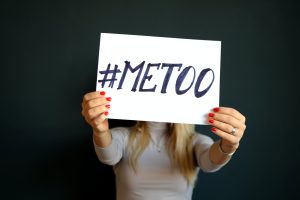
A DEI initiative is a whole organizational transformation where diversity, equity, inclusion, and belonging are built into the organizational culture. This is the perfect storm. Then what organizations are called to do, I believe, the first thing is to transform our relationship with failure. In order to succeed, we’ve got to be okay to fail.
We humans, we hate failing and it’s not all that much fun. We will not grow, and we will not succeed when we are doing the things that are safe and easy. I know Chaz, in your business, you’ve tried different things. Some of them work, some of them don’t work, and you’ve got to pivot. Just like this podcast episode today, we had a plan. It did not come true. We had to pivot.
That’s right. I like that comment you made about getting comfortable with failing and also adjusting our way of thinking about failure and our relationship to it. A few thoughts. First is that Robert Kiyosaki, even though he’s not someone I solely think is the entrepreneur to get strategy from, he does have some incredible principles in his books. Not to mention Rich Dad Poor Dad, where he talked about how he would love the idea of reforming the education system to adjust what failure means because that’s our gut reaction when we fail.
That psychological trick we have played in ourselves all these years comes from the awful humiliating feeling of receiving an F or anything below a C. That’s the first thing. That’s problematic because failure is an important part of life. School is saying it’s an unacceptable part of life and that’s unrealistic.
As a matter of fact, we all know our friends from Shark Tank. If you look at the success rate of the businesses, of all the sharks combined, do you know what the success rate is of all the businesses?
I would suspect it’s 20 or 30%.
It tees between 49% and 52%.
It’s higher than I would’ve guessed.
That’s still an F, a cumulative That’s good for an entrepreneur, but…
It’s great for an entrepreneur, which is why I had the idea it might be lower.
That’s why it’s problematic that a lot of people don’t try things because they’re scared to receive an F. They’re scared to achieve the 49-52% sliver. If you get into that curve right there and you fail to reach it, then an absolute loss is the current mentality and that’s problematic.
The second thing I wanted to bring up, there’s a wonderful book I read a long, long time ago in college called Fail Better. It talks about the kind of relationship we need with failure and how important it is to teach ourselves this concept.
Most situations to every everyday people like you and I are not life and death. Most people don’t work in industries that save lives or take lives. That’s a privilege I have as a business owner and not a soldier, doctor, police officer, or scientist. There are these different professions most people don’t have. If you are not in any of the titles I just mentioned, your failures are actually successes.
It’s an opportunity to learn. The basketball NBA basketball player, I believe with the Minnesota Bucks, but I could be wrong about that, Giannis, something Greek, known as the Greek Freak. If you go to YouTube and you put in Greek Freak failure, this video is going to come up and it is him talking for less than four minutes.
It is brilliant, and it’s happening because a reporter asks him about the failure of this season, and the same reporter asked the same question last year. That’s what triggers Giannis to go on this riff. Essentially what he says is, there is no failure in sports. It is all an opportunity to learn. One of the things he says is, Michael Jordan was in 15 NBA playoffs and they won six. Were the other nine failures?
I love that he’s talking about this because sports is definitely one of their domains. Sports and school are the two particular domains where we have an all-or-nothing attitude. This is a zero-sum game. We’ve collapsed failing with the idea of being bad.
I talk with organizations and organizational leaders, and I say with those of them who have children or just children in their lives, with everything we know about bringing up kids, would you say to a kid, “You are bad?” Or would you say to a child, “That was a bad thing that you did?” We make a difference between you being a bad boy and that was a naughty thing you did. We need to learn to make better choices.
We have collapsed this idea of failing and our worth as a human as being bad. We get to uncouple that now. If in order to succeed, we’ve got to be okay to fail, then in order to be okay with failure, we have to feel safe. We cannot create an organizational culture in which it’s okay to fail if we don’t have psychological safety in place so people know humans make mistakes and we are going to try things.
We are innovators, we are pushing the boundaries. We are learning new stuff. When you learn new things, you fall down. It’s okay. In order to feel safe, we’ve got to have trust. In order to have trust, we’ve got to have connectivity. That’s absolutely key. Here I am, I’m bringing it all back now and tying it up with a bow.
In order to have connectivity, people have to be open. They have to be okay with taking opportunities to be vulnerable. Vulnerability is another one of those words. We’ve collapsed vulnerable with weak. We need to uncouple that. There is nothing weak about showing your humanity. It takes strength to show our humanity, especially in business.
I have made an intentional decision with this podcast to show my humanity, to talk about the things that aren’t always going great in order to create that connection, create that safety, create that trust, and begin to normalize our relationship with failure. It is what I am up to. It’s part of how I model that it’s okay to show our humanity, and it’s part of how we make organizations great.
Absolutely. Can I share with you a story?
Please.
This is because I’ve watched you, in every single episode that I’ve had the privilege of producing, be vulnerable. I’d like to be vulnerable as well and tell a story, not just to you, but to our readers.
Great.
About a year ago, I had a client I had acquired through a cold call. I was trying out different sales techniques. Surprisingly, I was able to close the deal from a cold call. This was over a four-month sales cycle, but I was still able to make it happen. I was really proud of myself.
As well you should be.
The relationship started great. I was working with someone who was determined, decisive, convenient, and efficient to work with. They were something of an inspiration to me. I looked up to this person in a lot of ways. I had also hoped that because of this person’s level of determination, it would challenge me. It did. It was exciting getting their podcast up and running. It was really exciting to have their show reach the top in a lot of different ways.
What ended up happening was a few months in, admittedly, and this is where I’m going to be vulnerable, I probably got a little bit complacent. I got comfortable and I started to make careless mistakes. The client noticed it and called me out for it, and I fixed it. Then a few months later, I made another mistake and I was late for the production.
Then a few months later, there was a whole entire scheduling issue. I completely derailed the original schedule of the show. Because of this fiasco, I got on bad terms with the client. It got me to, got me out of discomfort and more into a lack of confidence around this particular client. I started to overthink everything, every note they gave me. I overthought it and it caused me to create more mistakes.
It was no longer about being sloppy. It was now about me straight up failing and realizing I only could dig my own grave deeper and deeper. There was no way out. I no longer felt safe speaking with this person.
I tried harder and harder and harder, and I kept on overthinking it. I didn’t give myself a chance to breathe.
What ended up happening was… there was this one faux pa, and I was trying to arrange a time with him to chat. When I called him up to schedule something, and this was intended to be a brief call, the client ended up spending 40 minutes on the call, berating me. I sat there for 40 minutes listening to this client get it out of their system.
I’m not exaggerating when I say 40 minutes, by the way. There’s a 40-minute monologue about how bad of a person I am, about how lazy and complacent and pathetic of a professional I’ve become. They were telling me I was the worst and only stress in their life. This was something that put me into my core, it was scarring.
This person wanted to hurt me. They had a very clear intention to hurt me. If I had gone about that call a different way, I probably would’ve hung up and said, “Let’s talk when you’re ready.” But I stood there and I took it the entire time. That was a grave mistake I made because what ended up happening was, I was trying to be proactive. The client was now on a destructive warpath. The call ended with no solution.
After the final interview I got to facilitate on their behalf, the client from that call, I felt like they didn’t give me much of a chance to improve and fired me. I remember being deeply hurt by that.
I remember being asked by my mentor, “Did you learn anything from that?” At that moment, I was so close to the situation, there was no way I could productively take out a lesson.
After a few months went by, which is how long it took to heal from that awful conversation, I ended up deducing a few solutions from that. The first lesson is that I need to be more attentive to my work. I need to be more detail-oriented. I will not deny that.
The second thing is, I should have hung up on the call. I shouldn’t have let the client treat me the way they did because that wasn’t very professional of them. That was an awful thing to endure.
The third thing I learned from this experience is, there were some opportunities for me to better, to get myself in a better place, and to be more professional.
Am I still mad at that client? Yeah, I probably wouldn’t touch that client with a 10-foot pole. Ex-client, excuse me…
Yes, yes.
What I would do though, and then what I have done is, I’ve taken the company from where it was and done things to make it more professional, more integrated with sales processes, more integrated with marketing processes. I’ve grown from that experience. I’ve gotten a thicker skin from that experience, no less.
I channeled the anxiety and grief from that experience into productive solutions the same way that years ago, I had channeled my anger from life not being good to me into creating a business in the first place.
It takes time, but allowing yourself to admit this hurts, and instead of ignoring it and circumventing it, actually facing it and saying, “No, I can turn this into something good.” Does pay off over time. It is the one thing you need as a human being to be relentless and to survive.
A lot of people brag about themselves being this sort of extraordinary entrepreneur. The truth is, you will never be the entrepreneur. If you don’t learn persistence, if you don’t learn how to be relentless, and how to be able to look past these shortcomings, admit the shortcomings, face them, and grow from them, you won’t find the entrepreneur you’re meant to be.
First, I really appreciate you for sharing that story. I knew little pieces of that story, but I’ve never heard it in total. Secondly, I want to, on behalf of business owners and managers and CEOs, and leadership everywhere, apologize for the way that person spoke to you. I have been spoken to in that way. Many people have been spoken to that way.
It doesn’t flick off your shoulder, it sticks and words hurt. I am on a campaign to normalize mental health issues. Part of our collective mental health challenge is in having dealt with toxic managers and the way that person spoke to you in not just saying this performance issue was a problem, but in making you a bad person, that’s never acceptable.
It has happened to me. It has happened to you. It has happened to, I’m sure many, many… I know the vast majority of our listeners because according to the Harvard Business Review, it has happened to 99% of workers.
It is a problem I am committed to being part of the solution for as we work through the problem. I want to apologize that it happened to you, and I want to honor you by knowing what you should have done was called that question off. I’m sorry, I just should on you. I try to not should on people. What you should have done. No, no, no, no, no. What you had an opportunity to do was something different.

No, it’s totally okay. I do not mind being should on every now and then, but I want to say thank you for that. That’s really, really kind of you. I want to commend you as well, Janine, for the, I’m going to call it the assault on lack of mental health and businesses. There needs to be a much higher prioritization of mental health and healthy cultures within office spaces.
Managers themselves need to be held accountable for their actions. Supervisors need to be given the proper training and guidance to be better than they were the day before. I think your work in DEI and mental health and productive cultures is not to be unnoticed.
I would love to help anyone if they find themselves in that sort of situation. I also want to applaud Chaz, for the way you ended that story, which was looking at what there was for you to learn. When we’re looking at transforming our relationship with failure, our opportunity is to think about it as a learning opportunity to think about us in this organization.
Are we a learning organization? Are we an organization operating on fear, because humans make mistakes. We mess things up. I made a $20 million mistake once. Huge, huge fucking mistake. There’s no way around that $20 million, I could have been fired. I wasn’t because I owned up to it. I walked my little self into his office and said, “Boss, I made a really big mistake and I’m freaking out and I don’t know what to do about it.”
Because of the way I owned it, he immediately started helping me figure out what to do about it and how we could fix it. In the end, we did. It all came out. That was him. On a good day, that was the organization. On a bad day, I would’ve been fired.
When we can get into that boat with our people and start helping them paddle to a solution, that’s where the juice is. If I had been flagrant about that mistake and tried to cover it up, which was my first instinct, when I realized it, I thought I was going to be sick.
That’s what we do. We jump to covering it up because we don’t want to get fired. I went down that rabbit hole for about 20 seconds, and then thankfully my brain came back and I realized, “No, what I need to do is go tell my boss.”
That’s what I did. Because of how I showed up, we were able to fix it. That’s part of what it is to be a learning organization. That’s part of what organizations in 2023 get to start living into.
Well said, well said.
Thank you. The key to all of it, in order to succeed, we’ve got to be okay to fail. In order to be okay with failing, we’ve got to feel safe. In order to feel safe, we’ve got to have trust. In order to have trust, we’ve got to have connectivity. That all starts with being okay with being human, being okay with being vulnerable in the appropriate ways.
That is why it is part of what I bring into this show every week. I hope you have enjoyed this sort of flying by the seat of our pants kind of episode here, I feel like this was really great. Do you think we…
Put on a good show?
Yeah.
Do you think they bought it?
I don’t know, we’ll find out. Chaz, thank you so much for being willing to experiment with me, to play with me. Thank you always for your support of not only the podcast, but for me, for our friendship. I really appreciate you.
It’s my pleasure. I am grateful for our friendship and our relationship, both working and personal as well, it really does mean the world.
Awesome. I am Janine Hamner Holman, and this has been The Cost of Not Paying Attention. Remember, great leaders make great teams. Until next time.
Important Links
About Chaz Volk
Chaz Volk is an entrepreneur in marketing and podcast production. He started his company, Mr. Thrive Media, in 2020, and it has grown to produce over 25 podcasts since. He is the producer of The Cost of Not Paying Attention.
